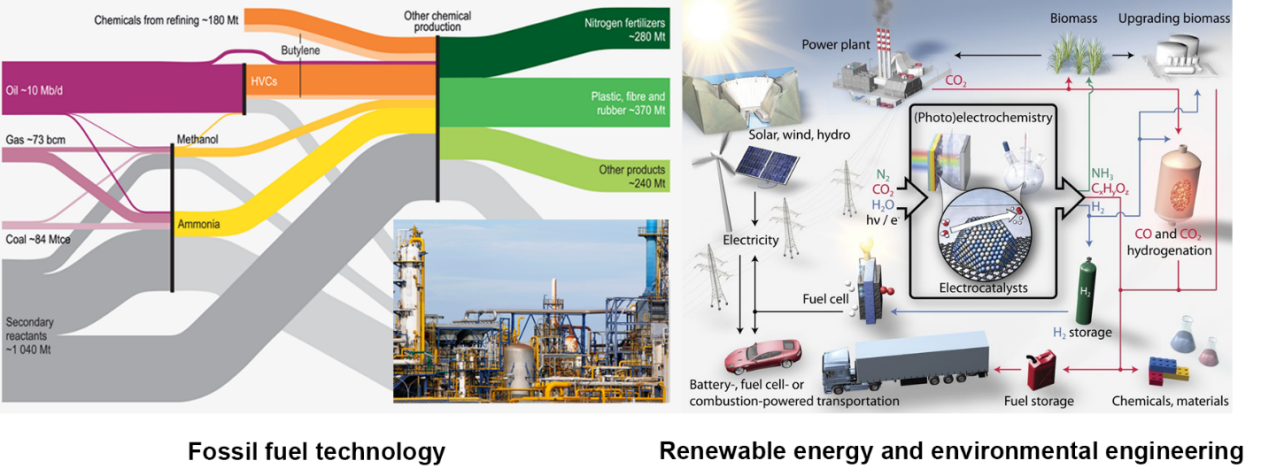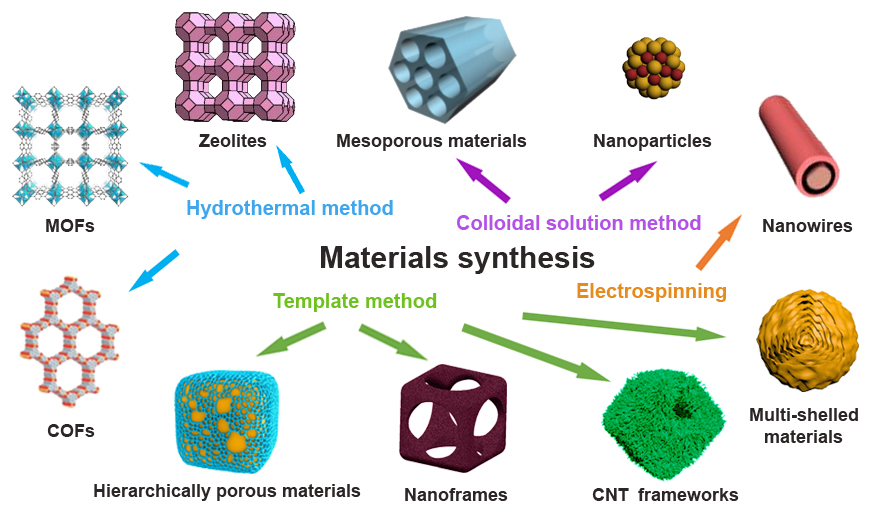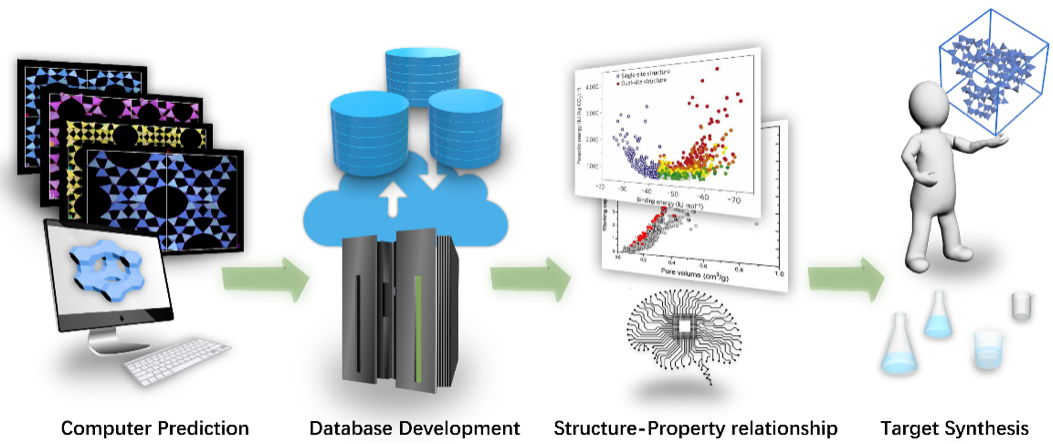Welcome to International Center of Future Science, Jilin University!
Today isIntroduction
The world is faced with challenges in sustainable development. Achieving long-term economic and social development requires new technologies to deliver efficient energy utilization and environmental protection. Our team endeavors to design advanced materials and devices to address energy and environmental challenges, especially in the fields of important petrochemical reactions, catalytic conversion of biomass, solar/electrochemical energy conversion and storage, wastewater treatment, carbon capture and conversion, and exhaust gas treatment, adsorption and enrichment of harmful volatile organic compounds, etc. To accelerate the function-led discovery of new materials, our research features a combination of multidisciplinary methods and techniques, such as high-throughput computational methods and intelligent algorithms, combinatorial experimental strategies, state-of-the-art operando characterization approaches, big data techniques, etc. Pilot scale-up and technology transformation of research results are carried out.
Research Interest
1. Energy and environmental technology:
We investigate important petrochemical reactions (e.g., methanol to olefins and olefin epoxidation, etc.), catalytic conversion of biomass to biodiesel, batteries and supercapacitors, photo(electro)lysis of water to hydrogen, photo(electro)catalytic CO2 reduction to carbonaceous fuels, wastewater treatment, carbon capture and conversion, and catalytic denitration of exhaust gas.

2. Advanced materials synthesis and fabrication:
We developed a set of synthetic approaches to obtain designed porous materials, nanostructured materials, and composite materials with morphology, structure, composition, and size control for catalysis, energy storage, heat transfer, and other fields. These techniques mainly include hydrothermal synthesis of molecular sieves, metal-organic frameworks, and covalent organic frameworks; colloidal solution synthesis of nanomaterials, mesoporous materials, and hierarchically porous materials; electrospinning synthesis of nanofibers; and template synthesis of composite materials.

3. Theoretical research:
We conduct computational predictions of nanoporous crystalline structures, high-throughput screening of functional nanoporous materials, and database development. By investigating the structure-property relationship and reaction mechanism of nanoporous materials through machine learning and other informatics methods, the theoretical research can provide guidance for the synthesis of function-led materials for energy and environment-related applications.
